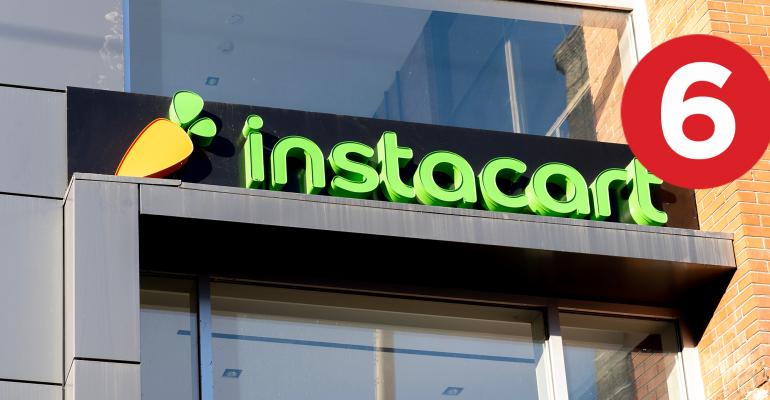- The Year Inequality Became Less Visible, and More Visible Than Ever “Americans also stopped broadly sharing libraries, movie theaters, train stations and public school classrooms, the spaces that still created common experience in increasingly unequal communities. Even the D.M.V., with its cross-section of life in a single room, wasn’t that anymore. Instead, people who could afford it retreated into smaller, more secure worlds during the pandemic. And that has made it harder to see all the inequality that worsened this year: the unemployment that soared even as the stock market did, the eviction threats that grew as home prices hit new highs.” (The New York Times)
- Instacart Looked Like a Savior. Now Stores Aren’t So Sure “Grocery-delivery service Instacart Inc. once seemed like the perfect partner for supermarkets looking to break into e-commerce. After several years together, though, some grocers are starting to question the relationship. Instacart’s technology provided a ready-made solution for grocery chains that hadn’t yet created options for customers to shop online. And it became even more attractive when delivery demand ballooned with the pandemic, providing armies of on-demand shoppers to fulfill orders in-store and deliver groceries to people’s homes.” (Wall Street Journal)
- NYC’s 10 Most Active Developers of 2020 “Construction timelines were disrupted across the city this year as sites deemed unessential were shut down. Still, work at many projects — including some of the largest ongoing developments — either qualified as essential or received approval from the Department of Buildings to move forward. And despite some delays, The Real Deal’s ranking of the most active developers in 2020 closely mirrors last year’s list, as well as 2018’s, with some minor shuffling among the top firms.” (The Real Deal)
- Restaurant Chains Stand to Gain as Independent Establishments Shutter Due to COVID-19 “Large, publicly traded restaurant chains stand to make gains in the coming months as the economy begins to recover and independent restaurants shutter due to the pressures of the COVID-19 pandemic, analysts say. BTIG analysts led by Peter Saleh raised the price target on Texas Roadhouse Inc. TXRH, -0.01% to $92 from $78 based on the possibilities that have arisen from the coronavirus. The analysts maintained their buy stock rating. Texas Roadhouse shares are up 42% in 2020 while the benchmark S&P 500 index has gained 14.6% for the period. The restaurant chain as a market capitalization of about $5.6 billion.” (MarketWatch)
- COVID-19 Has Stolen Lives, Broken Families, Widened Wealth Gap and Rewired Life in East L.A. “You can almost hear the despair in Yanez’s voice as she reflects on everything the pandemic has taken from her family. Her husband, Benny, a forklift driver, has arthritis in both knees but returned to work from disability leave in September, eager for a full paycheck. Almost immediately, his hours were cut. Her 7-year-old son, Benny Jr., an introvert, had finally started to open up, making a core group of friends at Our Lady of Guadalupe Elementary School on Hazard Avenue. But when classes moved online, the 43-year-old watched as her second-grader zoned out on Zoom, constantly talking about how much he missed his friends.” (Los Angeles Times)
- Elite Boarding Schools Offer Students a Unique COVID-19 Bubble “Many high schools are struggling with whether to allow students to learn in the classroom as Covid-19 infections surge across the U.S. But not the nation’s boarding schools. These schools have been mostly able to offer in-person learning with relatively few incidents, using a variety of intensive virus-mitigation strategies, according to Peter Upham, executive director of The Association of Boarding Schools. About a third of the nation’s more than 260 academic boarding schools have had Covid-19 cases, Upham said, but very few schools have seen outbreaks of more than just a couple students.” (Bloomberg)
0 comments
Hide comments

